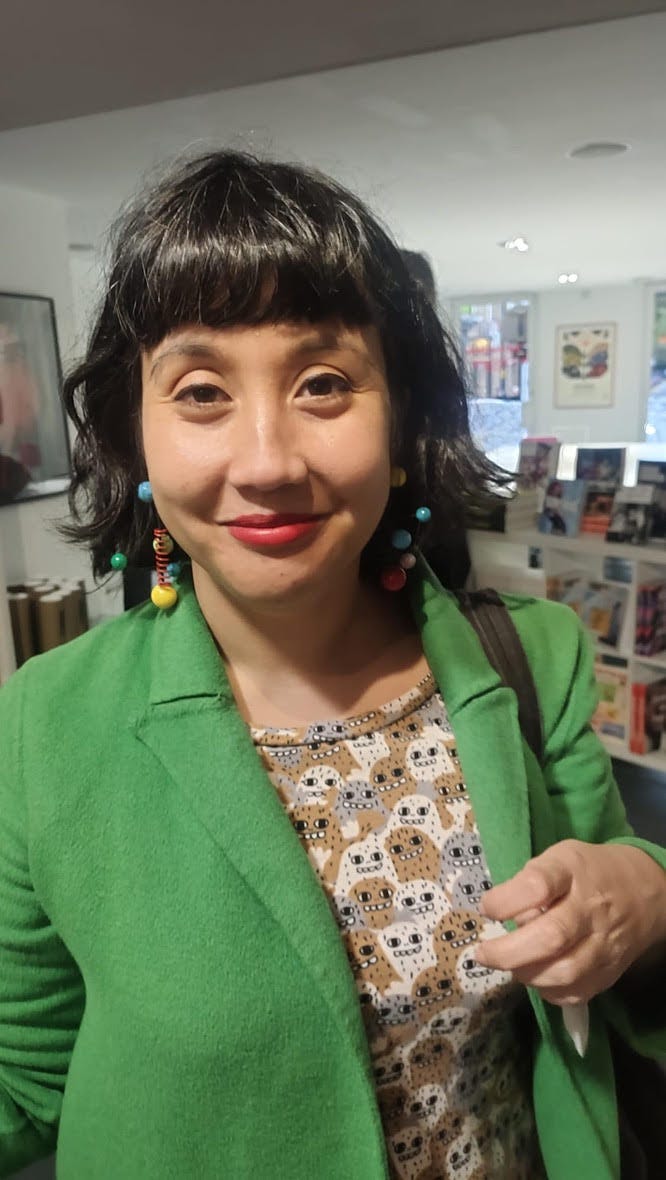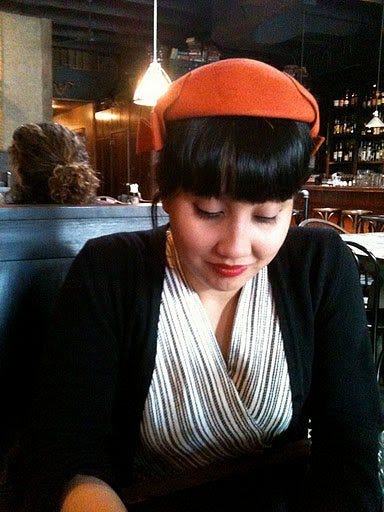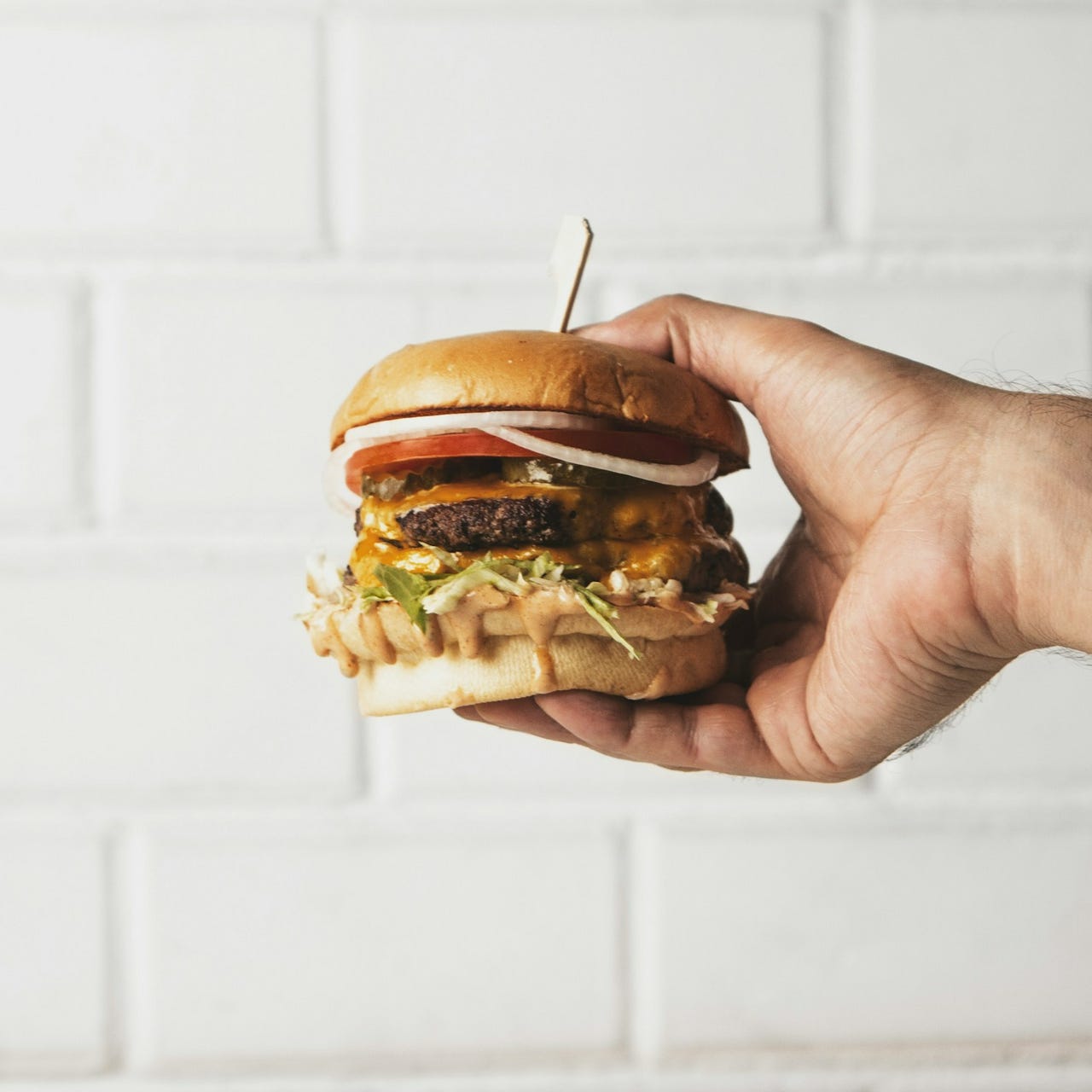“Allow yourself to suck”
writer and user researcher Corina Zappia on allowing yourself to suck with your first drafts, setting aside time to write, and writing about what truly interests you 💥📚
This is a Beginner’s Mind interview, a series that explores the intersection of mindfulness and creative practice. Zen master Shunryū Suzuki Roshi said, “In the beginner’s mind, there are many possibilities; in the expert’s mind, there are few.” This series shines a light on the practices that sustain people in their daily lives and open the path to new possibilities. If you know (or are) a writer, creative person, mindfulness teacher or practitioner with practices you’d like to share, just reply to this newsletter to be in touch with me. Subscribe below to make sure you don’t miss any future interviews.✨✨
The first real memory I have of
is when when she read from her essay, “Mole Biopsies and other Love Notes” at a student reading during our first MFA residency at Bennington. I remember sitting in a crusty common room armchair, anxiously gripping whatever poem I was about to read—then, suddenly I was snorting and weeping with laughter. I mean, the essay begins with the line: “If your mother is an oncologist and your father is an internist, you can talk about your genital mole over pork chops.” Come on, people. Could you hear someone deliver that line and not want to a) read everything they ever write, and b) be friends with them?Corina has continued writing brilliant, hilarious, rich essays that take you into the heart of what it means to be a human in the world. Only Corina can write about her mother pricing cemetery plots for her whole family and witnessing her father’s descent into Alzheimer’s, and make me laugh without at all reducing the complexities of life and death, as she does in her essay “Five Boxes.” She’s now working on her first book, which is about being a single woman in this cultural moment. I cannot wait for it.
Read on for a window into Corina’s writing practices. She brings a dose of realness and humor, including anti-mantra vibes and wise advice about allowing your first draft to “suck.” 💥📚
What are your writing/creative practices? Do you have any rituals or habits that help you?
I think just setting aside regular time to write is the big one. I try to write for a few hours Saturday and/or Sunday morning, from 9am-12, or 10am-1pm. I realize that is a luxury not everyone has, and would be very difficult/impossible if I had kids. I still wonder how my friends with kids are able to fit in writing- I marvel at their time maintenance skills.
A lot of people are big fans of writing for an hour every morning. I had a nonfiction professor, Peter Trachtenberg, who would always tell me, “Before you give any time to other people in the day, give that time to yourself” or something along those lines. I often can only do that one or two weekdays at most. I have a very time consuming 9-to-5 that takes up my weekdays – but I have enough work there to fill up every evening and weekday if I let it. So my biggest writing habit I’m trying to do right now is to cut off work on the weekend, and not see friends on the weekends until 2pm.
What are your mindfulness practices?
I’m going to be honest. I don’t really practice mindfulness, despite multiple therapists of mine over the years suggesting mindfulness and meditation apps. I need to get in there. Maybe it would help with my anxiety/sleeping issues.
Do you have a mantra or motto related to your creative/mindfulness practices/life? What piece of wisdom do you have on a post it note to help you remember it?
I don’t have anything on a post-it note. Mantras and mottos kind of creep me out – I always picture them on a poster, scrawled in cursive script above a setting sun on a beach or a cat hanging by a branch. (Remember those? Just “Hang in There”?) In some ways I feel like Nike made it painfully clear, this connection between mantras and marketing with “Just Do It,” and we could never come back from it. I also remember these gnarly frat boys I subletted my college apartment to, and when they left, the turds had actually scrawled on the wall in black marker things like “Believe” that had to be painted over. Skin-crawling.
If you’re asking about a rule I follow with writing, I guess it’s “Allow yourself to suck.” (Hell, I guess that’s a mantra, whether I’m willing to admit it or not, but I like to call it a rule to hate myself less.)
My writing is never good on a first draft, second, maybe even after a tenth. I have to allow what I put on the page to initially be...not great. The work happens in the rewrite. And the next rewrite, and the next …
What helps you when you get stuck with your creative/writing or mindfulness practices?
I just have to step away, when it comes to getting stuck with certain pieces. I’ll need to return to them in a day, a week, a month, sometimes even a year or two. I need to approach them with fresh eyes.
Having a workshop group with fellow writers you know and trust has also helped immensely. A group where you can just say , “I don’t know where to go with this,” and have others that I trust give me their opinions.
Another thing my teacher, Peter, told me – was to look at other writing to see, What can I steal? He wasn’t talking about lifting their writing word for word, he was talking about examining their techniques, their way of going about things. There’s writers out there whose writing I don’t even particularly like, but I like how they’ve set up an essay, how they’ve structured it. Examine the scaffolding. So I will pore over a book of theirs, writing outlines of how they’ve set something up so I can learn from it.
Are there any books / writers / teachers / approaches that have been transformative for you that you would recommend to readers?
Vivian Gornick, The Situation and The Story. Because I found when I first came to nonfiction writing, I would have a lot of situations, but creating a story, a narrative, was something I had to learn over time and am still learning. And I do follow those Rick Moody rules on the art of revision – I am always surprised at how much stronger my work is when I omit needless words and cut adjectives. Also, a teacher of mine, Dinah Lenney, advised me to read out loud what I write – you’d be surprised at how many things you catch.
Also, it’s not a book, but as someone who writes humor, I always follow David Sedaris’s advice- If you’re going to make fun of somebody, it helps to make more fun of yourself. Which is rule number 1. Otherwise you end up looking like a self-righteous asshole pretty quickly.
What advice would you give someone who is trying to start or restart a creative or mindfulness practice?
Write about something you enjoy or that interests you. That seems obvious, but sometimes people will write about a Serious Topic just because they think it’s what they should write about. I’ve done this myself so many times, I cannot tell you. I have to hold myself back from it.
And part of it is because sometimes I fear that what I write about is not as important. It’s amazing, how we psyche ourselves out so early – especially if you’re a woman who has been told in so many subtle or not-so-subtle ways that certain topics don’t matter or are frivolous. You’d be surprised at how much you can dig out from under these so-called light topics. I wrote about fashion for years, and I still think it’s a fantastic mirror and window into broader societal and cultural shifts.
Also, don’t worry about if it’s a well-trodden topic. There’s not really a new topic under the sun – but how you approach it and what you contribute makes all the difference. You can write about anything if you write about it well enough. You can write about a cauliflower. If you have things to say and you convey them well, your readers will follow you. That’s a damn fine cauliflower you got there.
Corina Zappia is a writer and user researcher who grew up in Beaumont, Texas and now calls London home. A former staff writer for the Village Voice and contributing food critic for The Stranger, her essays on mixed-race identity and the portrayal of single women onscreen have been featured in TriQuarterly, Los Angeles Review of Books, Electric Literature, Catapult, Rumpus and Salon. She graduated with a BA in International Relations from the University of Pennsylvania and a nonfiction MFA from Bennington College. You can find her on her two Substacks – Don’t Pretend We’re Dead, where she interviews and writing about cool women making their mark in advocacy, the arts, culture, food, science and technology, and ChompChompSlurp, with ramblings about dining out and cooking in as a single American expat who can't fit anything in her wee London fridge. She is at work on her first book of nonfiction.
Follow Corina on Instagram @czapps1976 and learn more at her website.
More from Corina
Subscribe to Corina’s Substack newsletters below👇🏼
Some recent essays by Corina that I recommend
“We All Want to Live in the Golden Girls House—Don’t We?” at Electric Literature
“Five Boxes” at Cutleaf
“The One-Way Ticket to Barcelona” at the Los Angeles Review of Books
IN CASE YOU MISSED IT at Be Where You Are
Join us for the next meet-up of The Ass in Chair Collective is Wed, March 12th @ 9-10 am EST. Subscribe to Be Where You Are so you get the post with the link. Check out what it’s about in the post from last week’s below 👇🏼
Be Where You Are is 100% reader-supported. You can support this work by becoming a paid subscriber. Or, just send it to a friend! 🩵
Be Where You Are is a newsletter about how to use writing and mindfulness to live more fully where you are. If you have ideas to share for future newsletters, you can reach me by replying to this email. I’d love to hear from you! You can also find me on Bluesky or Instagram or find more info at my website. ✨✨













Ooh, thank you for introducing me to Corina’s work!
"Allow yourself to suck"—AMEN. Corina's "Five Boxes" essay was beautiful. Thanks for sharing.